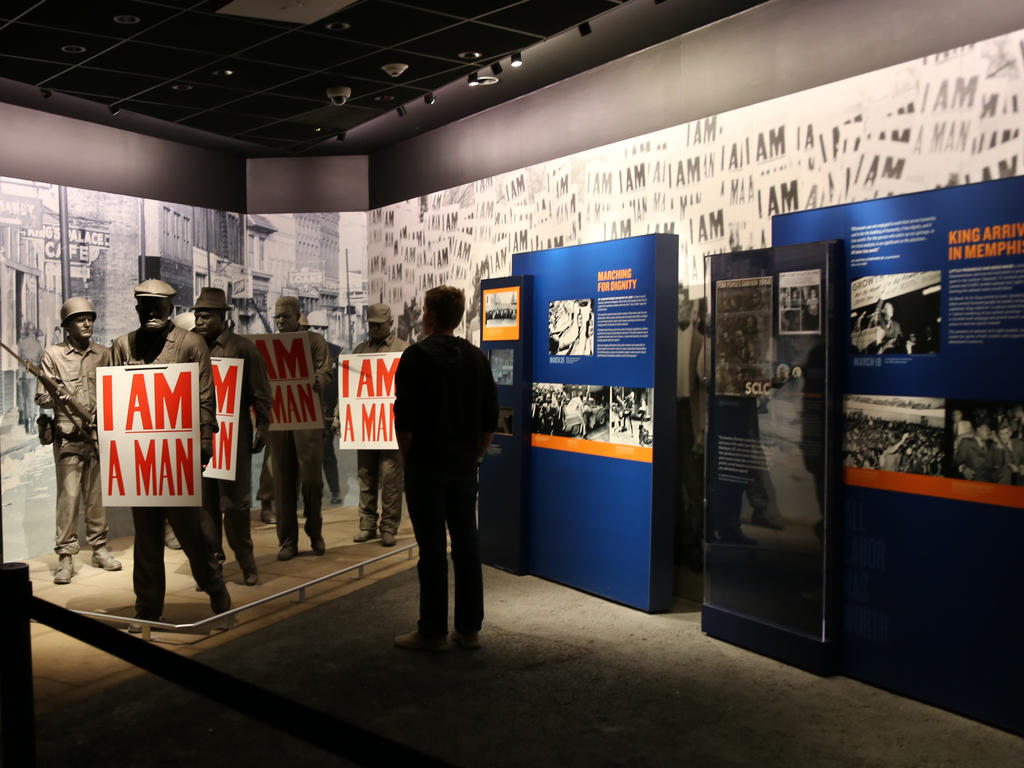Rhodes College is the recipient of a $600,000 grant from The Andrew W. Mellon Foundation to support a partnership with the National Civil Rights Museum (NCRM) for researching and fostering dialogue about current social issues in Memphis as well as creating curriculum and programming that lead to effective community action.
Because of their mutual interests and location in a metropolitan city, Rhodes and the NCRM will use the grant to explore how a group of connected issues such as diversification, health disparities, economic change, and creative placemaking affect urban experiences both historically and today.
“Rhodes College is extremely well positioned to help the Memphis community continue to develop and implement educational strategies that lead to tangible community outcomes,” says Dr. Milton Moreland, dean of the faculty and vice president for academic affairs. “We are thrilled to have faculty who are committed to big questions that face our region such as educational inequities and environment issues. Working with the NCRM and other community partners, this grant will help us confront these issues with our students, with an eye toward making a difference in the lives of Memphians.”
The NCRM has already partnered with Rhodes on multiple levels. Students have held internships at the museum for more than a decade, and NCRM staff have participated as lecturers, panelists, and trainers for the Rhodes Institute for Regional Studies and related programming. Rhodes faculty members Tim Huebner and Charles McKinney served on the Scholar Review committee for development of the interpretive plan for the newly renovated exhibits. Currently, Rhodes faculty are in conversation with NCRM staff about developing co-taught courses that respond to community issues.
“We are thrilled to have this opportunity to continue and deepen our work on engaged learning and scholarship with students and partners in Memphis,” says Dr. Elizabeth Thomas, associate professor of psychology and executive director of the Memphis Center at Rhodes. “The Mellon Grant enables faculty to integrate scholarly commitments with public and community concerns in shared inquiry and change efforts. The partnership with the National Civil Rights Museum is central to this work, and we are so excited to collaborate with this outstanding national cultural institution to develop shared courses and initiatives aimed toward racial justice, community building, and the practice of democracy.”
The three-year grant will help to establish the framework through which the Memphis Center at Rhodes and the NCRM can be the hub and the engine for a broader re-engineering of the ways liberal arts colleges and community partners work together to provide unique student experiences that transform communities in the 21st century. The grant also will support the creation of a series of lectures, performances, workshops, and other events.
“The National Civil Rights Museum is proud to continue to partner with Rhodes College to apply theoretical principles practically in community. It is important that we use the resources available in the museum to further civil society, recognizing what it has taken to get us to this point and what it will require for us to continue to build just communities,” says Terri Lee Freeman, president of the National Civil Rights Museum.
Rhodes has been the recipient of grants from the Mellon Foundation in the past, including a 2014 grant to support faculty and curricular initiatives at the Memphis Center for Integrative Teaching, Learning, and Scholarship, and a 2011 grant to support an interdisciplinary center focusing on the human experience of the Memphis region.
“This grant represents the next phase in Rhodes College’s long commitment to creating transformative educational opportunities through partnerships in Memphis,” adds Dr. Charles Hughes, director of the Rhodes Memphis Center. “By joining with the world-class National Civil Rights Museum, we will produce unique experiences on our campus and support the causes of democracy, equity, and justice in our city and beyond. It is an incredibly exciting opportunity and I can’t wait to get started.”
Established in 1991, the National Civil Rights Museum is located at the historic Lorraine Motel where civil rights leader Dr. Martin Luther King, Jr. was assassinated. A Smithsonian affiliate, the museum is steadfast in its mission to chronicle the American civil rights movement, examine today’s global civil and human rights issues, provoke thoughtful debate and serve as a catalyst for positive social change.
Founded in 1848, Rhodes College aspires to graduate students with a lifelong passion for learning, a compassion for others, and the ability to translate academic study and personal concern into effective leadership and action in their communities and the world.
